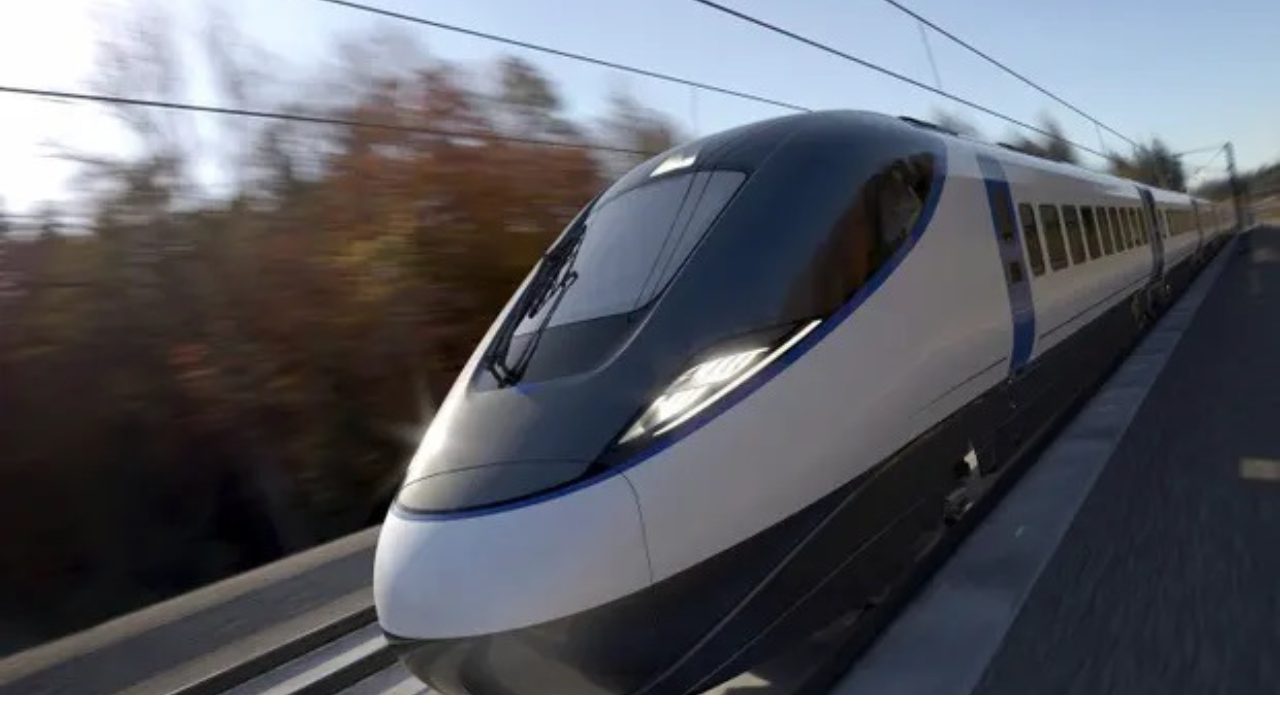The chancellor, Jeremy Hunt, has attempted to dispel rumors that HS2 trains won’t travel through central London, saying he doesn’t see “any conceivable conditions” in which the planned Euston terminus wouldn’t proceed.
As a cost-saving measure, it had been suggested that the high-speed rail network may permanently end in the capital’s western suburbs rather than in the heart of London.
When asked by BBC News if ministers were committed to HS2 going all the way to Euston, Hunt responded, “Yes we are. And I cannot imagine a scenario in which that would not arrive at Euston.
In the autumn statement, Hunt stated that he “prioritized HS2.” He continued, “We have not had a good track record in this country of delivering complex, expensive infrastructure quickly, but I’m incredibly proud that, for the first time in this last decade, under a Conservative government, we have shovels in the ground building HS2, and we’re going to make it happen.”
Later, the designated spokeswoman for Downing Street echoed his sentiments. No. 10 allayed concerns about a delay by stating that the anticipated delivery dates still apply to the scheduled development phases.
According to the Sun, HS2 officials reportedly considered postponing the Euston terminal until 2038 or abandoning it entirely in order to cut costs on the multibillion-pound project.
After recommendations in the 2019 Oakervee review for Boris Johnson, HS2 had already intended to exclusively operate services from a new hub being built at Old Oak Common, five miles away in the suburbs of west London, when the route opens in about 2030. However, according to The Sun, the government was considering making it the end of the line permanently, forcing travelers to conclude their trips into central London by taking the Elizabeth line.
West of Old Oak Common, tunneling has begun, although the Euston cut-through is not yet being constructed. However, numerous residences and businesses in the Euston area have already been destroyed during the years-long HS2 construction around the station.
Axing the line before it reached central London, according to business organizations in the north and south, would be foolish and would jeopardize the plan.
The reports were not expressly denied earlier by the government. According to a representative for the Department of Transportation, “the government is still committed to bringing HS2 to Manchester, as stated in the fall statement. In addition to creating tens of thousands of jobs, the project will connect different parts of the UK, increase rail capacity, and offer a more environmentally friendly mode of transportation.
Regarding the project’s financial and environmental effects, there has been constant criticism. Michael Gove, the leveling-up secretary, stated in October of last year that capital expenditure for HS2 will be reassessed; nevertheless, Hunt later supported the project.
Phase One of the London to Birmingham project was expected to cost £40.3 billion at 2019 prices. HS2’s overall budget was set at £55.7 billion in 2015.
It was “not at all shocking,” according to Penny Gaines of the anti-HS2 movement, that prices were out of control. These findings only demonstrate the numerous issues with HS2, she said. “It should be completely cancelled as soon as feasible because it is being delayed more and more, increasing the cost.”
